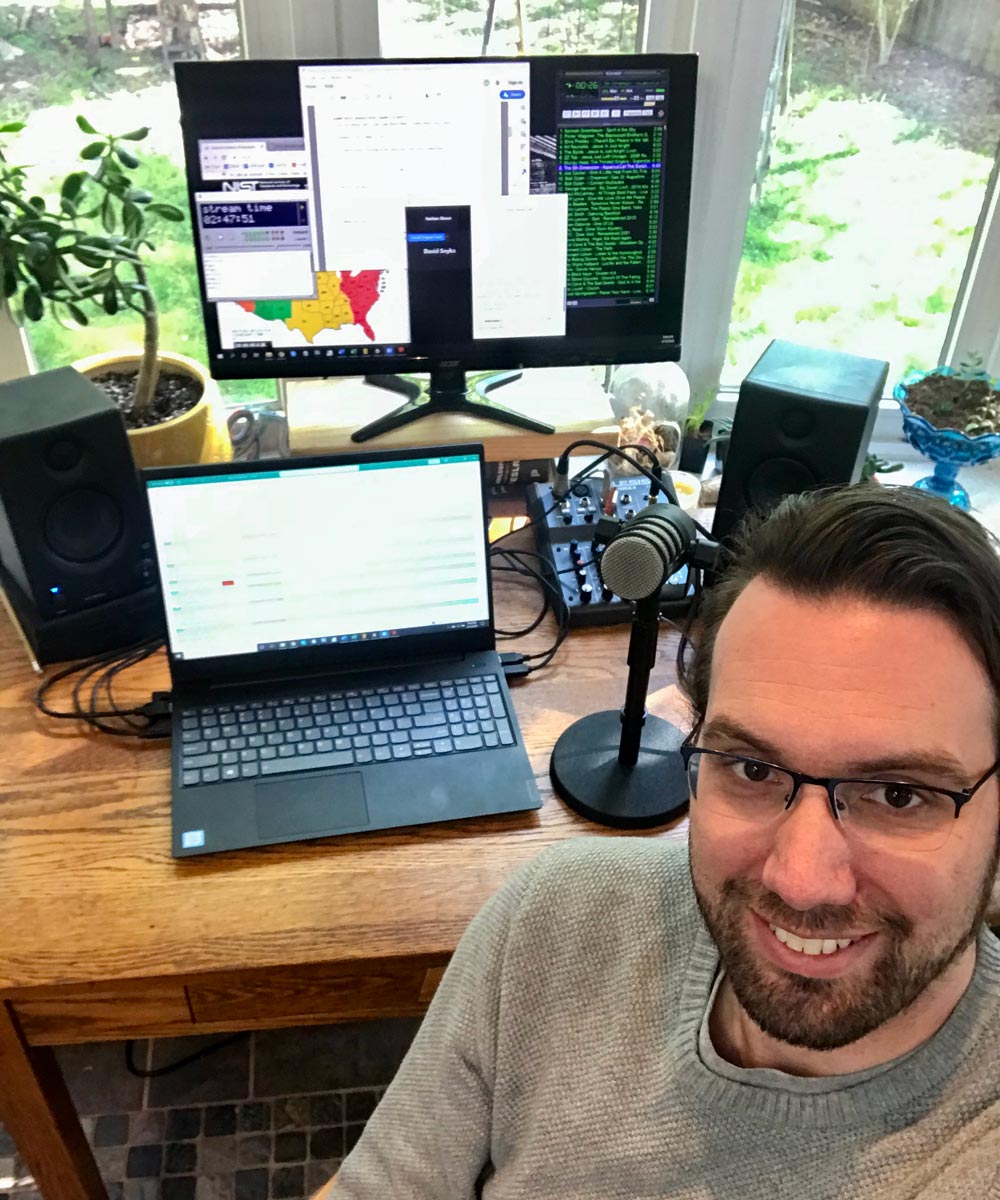WTJU Persists in Building Community on Air Amid Pandemic
In a time of crisis, the University of Virginia’s radio stations have rekindled their mission. Radio has not suffered the same …
In a time of crisis, the University of Virginia’s radio stations have rekindled their mission.
Radio has not suffered the same blow as many other artistic industries in this time of COVID-19 closures. According to Nathan Moore, general manager of WTJU 91.1 FM and staff adviser to WXTJ 100.1 FM, the opposite has actually occurred in his line of work.
“In this era of social distancing, radio is kind of like Netflix: it’s still there,” said Moore. “Radio listenership is even up a bit.”
UVA’s community and student radio stations have been using the recent pandemic-ridden months to explore new ways to unite the Charlottesville community.
According to Moore, WTJU serves a few purposes. First, it provides community information, which is more important now than ever before.
“Especially in those early days, when there [was] a lot of uncertainty about what’s happening, we were a source of local information,” Moore said. “We have made a really strong effort to provide information about how to give help, and also about how to receive help.”
Paired with this is WTJU’s core mission of bringing people together through music. Moore believes this aspect of the station’s programming is why radio is so important for many during this time of hardship.
“We’ve been a source for uplift, joy and human connection through all this, which I think serves a critical need,” he said. “Music is there to keep us all sane and grounded, as well as feeling human in each other’s presence through music.”
Despite the fact that radio listenership is up during Virginia’s stay-at-home order, WTJU has faced many challenges adapting to the world of working from home. Because only one person is allowed in the station at any given time, much of the usually collaborative work is now being done remotely.
During WTJU’s annual Rock Marathon pledge drive this spring, adjustments had to be made quickly to this new remote form of collaboration. In order to keep its weeklong special programs intact for the pledge drive, the station found other ways to air content.
Hosts were virtually united via home-based webstreams and the Zoom videoconferencing platform to run the show; phone answerers had pledge calls redirected to their home phones; and four home-based studios were built around Charlottesville. These adjustments allowed content to be aired around the clock, without ever having more than one DJ in the studio at a time.
 DJs and show hosts like Moore have been airing live from the comfort of their own home offices, shown here. (Contributed photo)
DJs and show hosts like Moore have been airing live from the comfort of their own home offices, shown here. (Contributed photo)
Radio programming is only part of the work WTJU has been doing for the community.
The station has branched out from its traditional programming to begin creating coloring pages for kids of all ages, encouraging listeners to “Make Some Joy” by playing a bit of Beethoven’s “Ode to Joy,” and curating a set of living room concerts in partnership with the Front Porch. These activities all serve to keep local artists creatively fulfilled.
“We’re really trying hard to meet our community’s information and cultural needs through a tough time,” Moore said of the creative community efforts.
WTJU’s student partner station, WXTJ 100.1 FM, has faced even more challenges. Because it is a student-run station, the departure of UVA students from Grounds posed a unique challenge. The station quickly planned virtual concerts with student musicians and bands to continue creating performance opportunities for student artists.
“We are really just trying to keep people engaged during this time,” Liezl Vergara, a WXTJ student worker and May UVA graduate who double-majored in anthropology and American studies.
On Friday, Vergara will serve as a panelist on one of two “Radio Talks,” WTJU’s new Zoom-based, music-related panel discussions that also will include Moore and alumni music journalists Erin O’Hare and Rob Sheffield.
According to Moore, student DJs are now hosting about 20 live radio shows per week from their own homes.
“What’s been sort of fun has been to develop our tech infrastructure to meet the needs of our community during this time,” he said. “If we need to set up a system where student DJs can broadcast live from home around the clock, we’re only about a step away from being able to do that. I think that speaks to WTJU’s amazing staff and volunteers, but also speaks to how we can leverage technology to bring our community together.”
Payton Moledor
Student Writer
Original Publication: UVA Today
You are using an old version of Internet Explorer. Our site is developed with the latest technology, which is not supported by older browsers
We recommend that you use Google Chrome for accessing our (or any) website. It is a FREE and modern web-browser which supports the latest web technologies offering you a cleaner and more secure browsing experience.